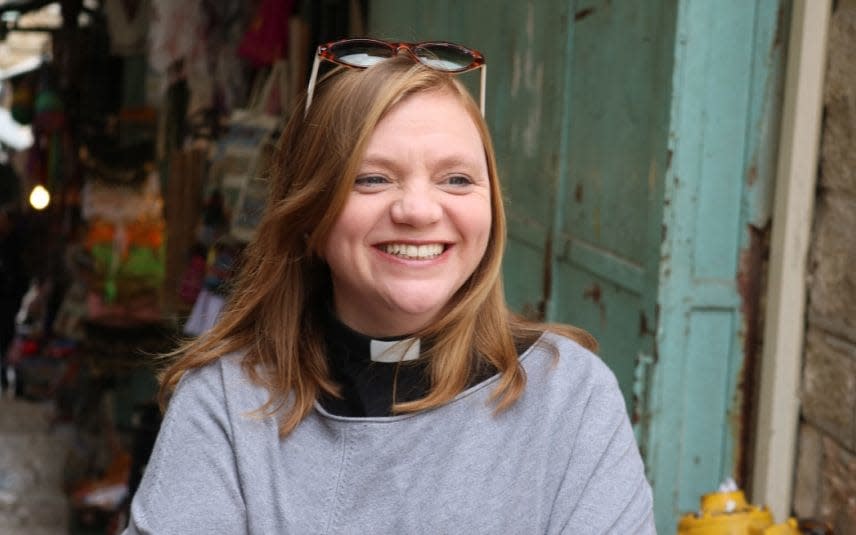It might boost my ego, but no one becomes a vicar because they saw it on TV

Growing up I always wanted to be a newsreader or a diplomat. My primary school teacher, Miss Penrose, was convinced I’d be a nurse or a teacher and she got it right, in part - I was a teacher, secondary RE, for almost 10 years.
I loved teaching and never thought I’d do anything else. So it came as a complete shock when quite unexpectedly I felt a call to ordained ministry. Full time vicaring. Being a priest.
It was my own vicar who spotted it first; a nervous conversation followed, multiple interviews, a delve into my psyche and a weekend away at a country house with a gang of other wannabes.
Next, came two years at theological college, a master's degree and a three year apprenticeship, before finally getting a parish (well, three to be precise) of my own.
Being a vicar is emotionally and physically tough
There had been plenty of time to change my mind but, despite occasional wobbles, I never did. And never have - despite the fact that the Church of England don’t give me a stipend anymore and I earn my crust from writing and broadcasting (BBC Radio 2 on Sunday mornings), my priestly identity remains undiminished. I’m more certain of my calling now than I ever was - more so in fact.
And it seems I’m not alone. Figures released by the Church of England show a 19 per cent increase in the number of people starting training for ordination compared to last year.
In the under 32 age group the numbers are up, too. Some people have suggested that the rise in the numbers going into ministry is because of clerical ‘celebrities’, chiefly me and the Reverend Richard Coles, who is currently appearing in Strictly.

There’s other news too, the big headline is that while overall women make up about 29 per cent of clergy, the number of women starting training now outnumbers men. Of course, it’s important to be wary of statistics - and it’s not quite time for the good old Church of England to pat itself on the back for a ‘job well done’ in the quest for equality, there’s still a way to go - but I think it’s encouraging stuff.
And heaven knows, jobbing clergy need all the encouragement they can get.
It’s definitely not a one-day-a-week job, and it’s not just a ‘free’ house. In the face of falling numbers in the pews and a culture that, at best, finds us quaint and at worst irrelevant, being a vicar is emotionally and physically tough. And that’s before we even talk about ministering to the dying, sick and lonely, taking care of church finances, building management, HR, the legal stuff and being on every committee and working party going - not to mention trying to find time for yourself and the family.
While it inflates the ego to think my treacle tart would result in Damascene moments for countless viewers, no one would become a vicar because they saw it on telly
It’s the extremes of emotions, too. I remember rushing from a book week assembly dressed as an Oompa Loompa to the bedside of a lady named Betty, who had no family, just in time to give her final communion, still with the orange makeup behind my ears.
I’m often asked ‘What made you want to become a vicar?’ The truth is I didn’t want to, not really, and anyone who wants to be one, probably shouldn’t be.
And while it inflates the ego no end to think my Masterchef treacle tart or Rev. Cole’s cha cha cha would result in Damascene moments for countless viewers, the fact of the matter is no one would become a vicar because they saw it on the telly.
The reason people offer their whole lives to the service of the church, and their community, is because they are convinced that they are called to; called to serve, to love their neighbour and to make a difference. I know that’s why I did and I can’t imagine ever doing anything else.

